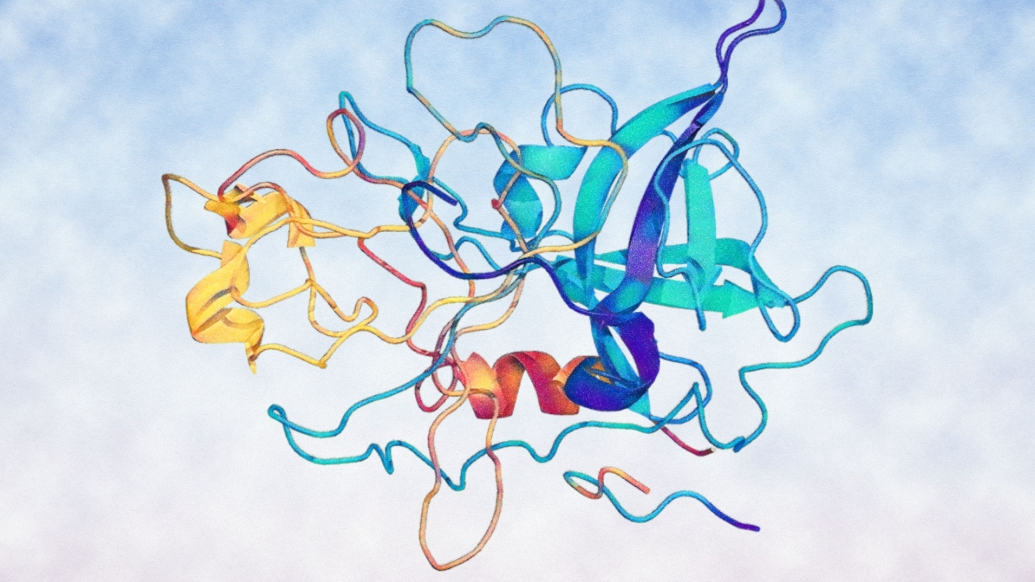Experiments in non-human primates, mice and humans led to the findings
5:00 AM
Author |

Certain viral infections, such as HIV and COVID-19, have been linked to kidney dysfunction.
Now, a study shows that specific viral proteins interact with the immune system itself to cause the disease.
Through a series of experiments in non-human primates, mice and humans, a multi-institutional team led by researchers from Michigan Medicine and Rush University found that the immune protein soluble urokinase plasminogen activator receptor, or suPAR, is an important link between viral infections and proteinuria; the elevation of protein in the urine is known to cause glomerulopathy, a common form of kidney disease.
“We’ve always suspected that organ damage, such as proteinuria, that happens after viral infections is related to some dysfunctional aspect of the immune system,” said Salim Hayek, M.D., co-senior author of the study and medical director of the University of Michigan Health Frankel Cardiovascular Center Clinics.
“Through this work, we convincingly show that the immune-derived protein suPAR plays an essential role in that process. This clarifies an aspect of immunology that was undefined and points to a future where patients with viruses associated with kidney disease could be treated by medications that target suPAR.”
The results, published in Nature Communications, were achieved through three distinct experiments.
How suPAR binds to viral proteins to cause kidney disease
First, researchers showed that suPAR levels in the blood increased significantly when African green monkeys were infected with COVID-19.
These experimental animals also showed major signs of disruption of the kidney’s filtration system, such as proteinuria.
SEE ALSO: New immune target to treat cardiovascular disease discovered | Michigan Medicine
Findings were similar in mice exposed to COVID-19.
Genetically modified mice that produced high suPAR levels had significantly worse kidney disease when exposed to the virus, while mice that did not produce suPAR were protected and did not develop glomerulopathy.
This effect was also strain-specific.
This clarifies an aspect of immunology that was undefined and points to a future where patients with viruses associated with kidney disease could be treated by medications that target suPAR."
Exposure of the mice to the Delta-variant of the COVID-19 virus led to more severe kidney disease, while exposure to the Omicron variant did not.
“These experiments show suPAR is an integral part of the relationship between viral proteins and the downstream development of kidney disease and its severity,” said first author Changli Wei, M.D., Ph.D., a professor of internal medicine at Rush Medical College.
A deeper dive revealed that suPAR and the spike protein of SARS-CoV-2 interact directly together to trigger kidney dysfunction.
To determine whether any of these experimental findings applied to patients, the investigators tapped into the Michigan Medicine COVID-19 Cohort (M2C2), a study of nearly 2,000 patients hospitalized for COVID-19.
They found that suPAR levels were strongly tied to proteinuria in these patients, notably in patients infected with non-Omicron variants. That relationship was, however, attenuated in patients infected with the Omicron variant, in line with the differences seen in the experiments.
Future studies, therapies
In the mice, an anti-suPAR antibody, as well as COVID-19 vaccination, prevented proteinuria caused by the virus.
Therapies that target suPAR are being tested, including a Phase I clinical trial announced in June 2023.
New insights into biology and medicine are always better through collaborative team science, says co-senior author Jochen Reiser, M.D., Ph.D., president of the University of Texas Medical Branch in Galveston
“This study is a testament to the power of multidisciplinary teams,” Reiser said. “suPAR connects innate immunity and the kidney through regulating kidney barrier function. Virus-related kidney disease not only enhances our scientific understanding but also brings us closer to developing effective, personalized treatments for kidney disease patients."
Additional authors include the Michigan Medicine COVID-19 Investigators Consortium, Anis Ismail, M.D., of University of Michigan, Changli Wei, M.D., Ph.D., Jing Li, Sudhini Yashwanth, M.D., Shengyuan Luo, MBBS, Kyle T. Amber, Alan Landay, Ph.D., Nicholas W. Kriho, David Cimbaluk, M.D., all of Rush University Medical Center, Prasun K. Datta, Ph.D., Tracy Fischer, Ph.D., Jay Rappaport, Ph.D., all of Tulane National Primate Research Center, Florian Siegerist, M.D., Nicole Endlich, Ph.D., both of University Medicine Greifswald and NIPOKA GmbH, and Kwi Hye Koh, Ph.D., of Morphic Therapeutic.
J. Reiser is co-founder and shareholder of Walden Biosciences, a biotechnology company that develops novel kidney protective therapies. The remaining authors declare no competing interests.
Paper cited: “SuPAR mediates viral response proteinuria by rapidly changing podocyte function,” Nature Communications. DOI: 10.1038/s41467-023-40165-

Explore a variety of health care news & stories by visiting the Health Lab home page for more articles.

Department of Communication at Michigan Medicine
Want top health & research news weekly? Sign up for Health Lab’s newsletters today!





